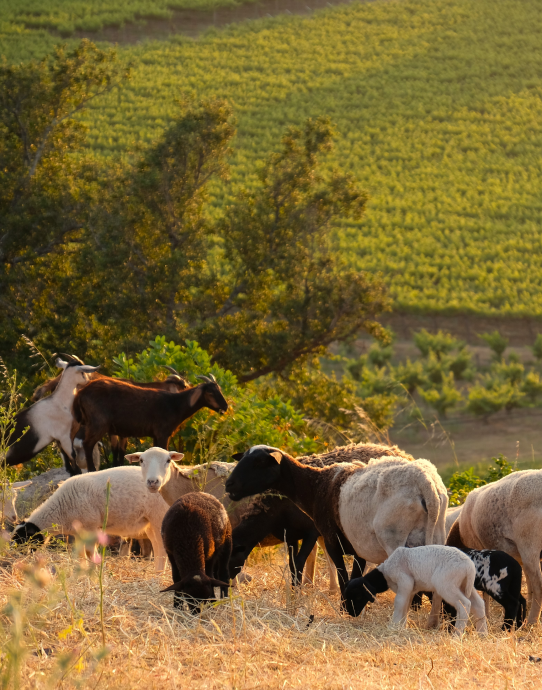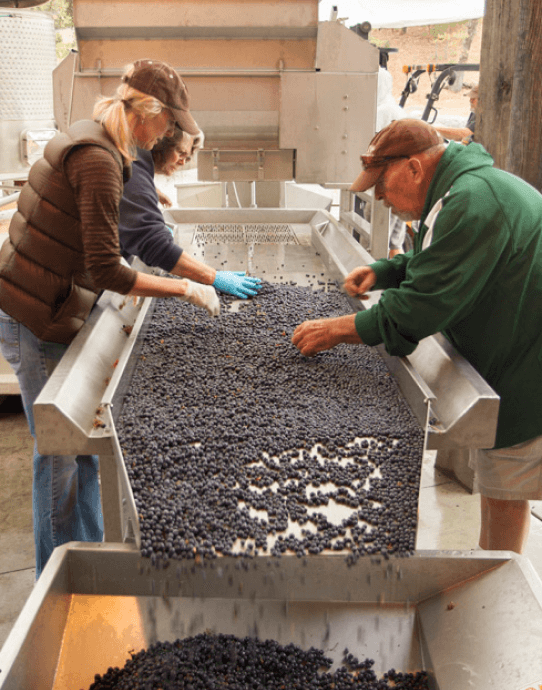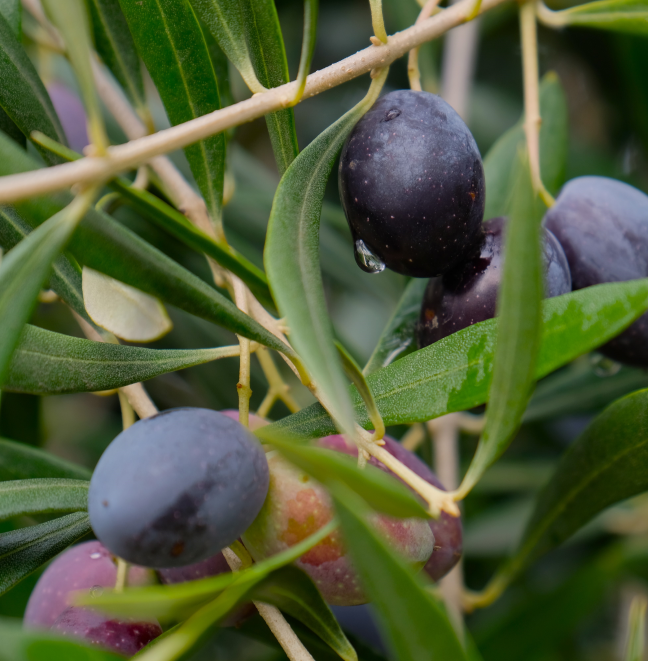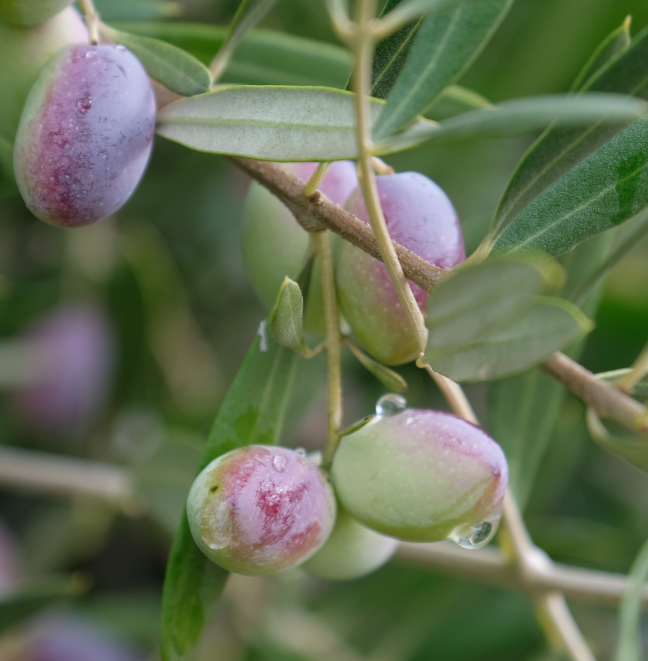Olive Trees
Olive trees are highly beneficial for the environment and sustainability, particularly in regions like Napa Valley, for several reasons.
Olive trees are well-suited to the Mediterranean climate of California, which is characterized by dry summers and wet winters. They are drought-resistant and require significantly less water compared to many other crops. This makes them an ideal choice for sustainable agriculture in water-scarce areas. Olive trees have deep root systems that help prevent soil erosion. Their roots stabilize the soil and improve its structure, which can reduce the risk of landslides and promote better water infiltration. Additionally, the leaves and prunings from olive trees can be composted to enhance soil organic matter and fertility. Olive trees absorb carbon dioxide from the atmosphere and store it as biomass, contributing to the reduction of greenhouse gases. This carbon sequestration helps mitigate climate change by lowering the overall carbon footprint of agricultural practices. These beautiful trees have a long productive lifespan, often producing fruit for hundreds of years. This long-term productivity means that once established, olive groves can continue to provide economic and environmental benefits for many generations without the need for frequent replanting.













